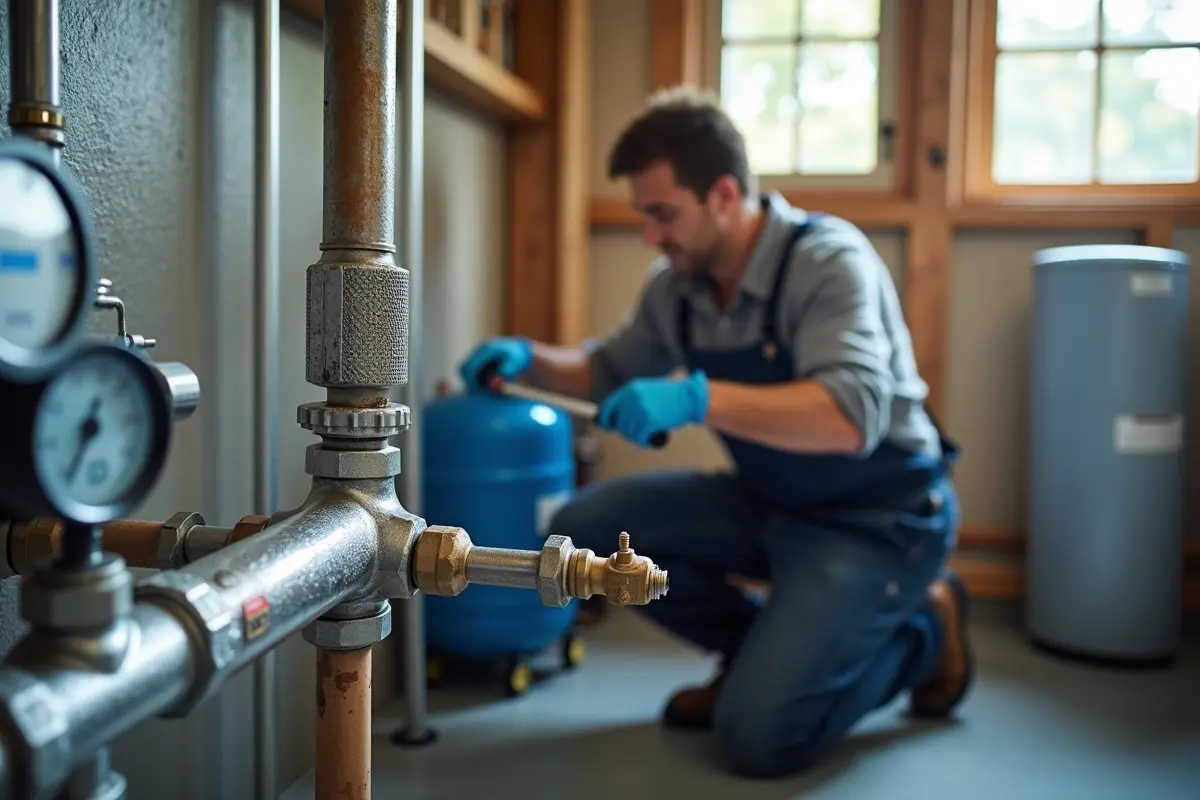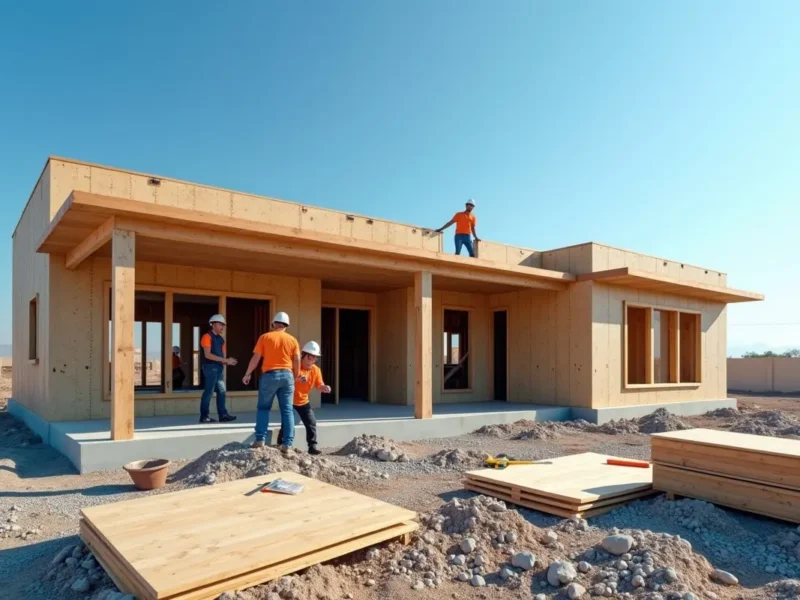Maintaining your home’s water system is more than just an occasional check for leaks. It involves a comprehensive approach that includes inspections, cleaning, filter replacements, and proactive identification of potential issues that could disrupt your daily routine. Consistent attention helps secure your investment, protect your family’s health, and increase your property’s value. Water systems, when neglected, can suffer from reduced efficiency, leading to increased operational costs and emergency repairs.
Whether you’re a new homeowner, a seasoned property manager, or someone overseeing multiple properties, using high-quality water system maintenance products is key to ensuring your system operates smoothly and efficiently for years to come. The right tools and products can make preventive care straightforward and practical, making regular maintenance accessible to anyone willing to invest a little time and effort.
Regular maintenance is crucial for minimizing risks by identifying minor issues before they escalate into costly problems. For instance, a small leak can lead to hidden damage, mold growth, and increased water bills. Additionally, it contributes to daily comfort by providing clean water for essential activities and reduces long-term repair costs. Proper maintenance also promotes environmental sustainability through efficient water use, aligning with community efforts towards resource conservation and climate mindfulness.
Contents
Understanding the Importance of Water System Maintenance
Your water system quietly supports everything from morning routines to nightly dishwashing. Yet, it is often neglected until a problem arises. Without proper maintenance, components such as pipes, pumps, and filters can deteriorate, leading to nuisance issues—or worse, health hazards caused by contamination.
Unattended leaks or bursts may cause significant property damage and encourage the spread of bacteria or mold. Poorly maintained water systems are frequently responsible for water wastage, higher utility bills, and unnecessary strain on local water resources.
According to National Geographic, efficient use and management of water resources are vital as environmental pressures continue to rise. By prioritizing regular maintenance, homeowners can play a crucial role in water conservation efforts and help ensure a safe and sustainable water supply for future generations.
Common Issues Arising from Neglect
Homeowners who skip routine checkups may eventually face some prevalent problems that could have been prevented with consistent maintenance:
- Leaks: Even slow leaks can cause significant structural damage and promote mold growth, leading to costly repairs and potential health risks. Over time, leaks waste a substantial amount of water and can go unnoticed if they are hidden behind walls or under floors.
- Corrosion: Over time, metal pipes or tanks are susceptible to rust and corrosion—this not only taints water quality but can also necessitate expensive replacements if not addressed in time. Corrosion can compromise water taste and safety, and in extreme cases, may lead to the failure of entire system components.
- Mineral Buildup: Hard water causes scale deposits in pipes, fixtures, and appliances, reducing water flow and increasing the energy required to heat water. Mineral buildup can also reduce the lifespan of your water heater and other devices that rely on water flow.
These issues not only compromise the performance of your system but may also impact the taste, odor, and safety of your water. For instance, hard water buildup can make appliances less effective and also cause soap to be less efficient during cleaning.
Beyond residential settings, consistent system care is a critical component of public health, as emphasized by the Centers for Disease Control and Prevention, which recommends regular checkups to prevent contamination and equipment failure. When left unchecked, these issues can lead to larger community-wide problems if shared or municipal systems are involved.
Routine Maintenance Practices
A structured maintenance schedule is the cornerstone of a long-lasting water system. Following a regular routine helps keep your water system reliable while maximizing its efficiency and minimizing risk. The following practices should be integrated into every homeowner’s routine to ensure their system’s longevity:
Regular Inspections
Routine system inspections are crucial for detecting wear, leaks, or unusual noises early. Catching these signs early means you can act before a minor issue becomes a major, costly problem. Checking valves, joints, and fixtures for soft spots or corrosion is especially important, as these areas are prone to leaks and structural weaknesses.
The U.S. Environmental Protection Agency (EPA) recommends that regular inspections can enhance system longevity and reduce water waste, thereby improving efficiency and generating additional savings. By identifying potential trouble spots, regular inspections help homeowners stay ahead of major repairs and maintain peace of mind.
Filter Replacement
Filters protect your family from contaminants and impurities found in local water supplies. Over time, these filters can become clogged or worn out, which diminishes both water quality and pressure. Dirty filters are also less effective at removing harmful substances, putting your health at risk.
Experts recommend changing sediment filters every three to six months, although this interval may vary depending on local water quality, system usage, and manufacturer recommendations. Replacing filters regularly is a quick and affordable way to ensure that everyone in your household has access to safe, clean water at all times.
System Cleaning
Annual system flushing is another critical practice, as it helps remove sediment and mineral deposits from tanks and pipes. Sediment buildup narrows pipe passages and increases pressure within your system, which eventually puts strain on joints and other vulnerable components.
Without routine cleaning, mineral scale can accumulate rapidly, especially in regions with hard water. This not only reduces your system’s efficiency but also increases your energy bills as it becomes harder to heat water or move it through clogged pipes. Preventative cleaning boosts system performance and helps extend the lifespan of your entire installation.
Professional Maintenance Services
While most homeowners can handle basic maintenance tasks such as changing filters or visually inspecting pipes for leaks, more complex jobs should always be entrusted to certified professionals. Licensed technicians use specialized equipment to assess your water system, examine hard-to-reach or technical components, calibrate controls, and repair or replace malfunctioning parts.
Professionals can also test water quality to identify invisible threats, such as bacteria or heavy metals. Comprehensive professional servicing ensures your water system remains compliant with the latest safety standards and building codes while reducing the potential for catastrophic failures. Professional inspections and maintenance can help identify issues you may have missed, offering an extra layer of security and peace of mind for homeowners.
Benefits of Regular Maintenance
- Extended Lifespan: Systematic care prolongs the service life of pipes, filters, tanks, and appliances by preventing buildup and component fatigue, thereby extending their lifespan. When proactively maintained, even older systems can offer reliable performance and avoid untimely replacements.
- Cost Savings: Preventive maintenance stops minor leaks or faults from escalating into expensive emergencies, preserving household finances in the long term. Addressing small repairs now avoids major system overhauls later, which can be a significant financial burden.
- Improved Water Quality: Well-maintained systems deliver fresher, cleaner, and safer water—minimizing the risk of exposure to contaminants. Consistently monitoring and replacing filters ensures every tap in your home provides high-quality water, benefiting your family’s health.
Conclusion
Staying proactive with water system maintenance is an investment in your property and your well-being. Establishing a regular inspection and care routine, including the use of trusted water system maintenance products, helps prevent the most common and costly issues. These practices not only extend the life of your water system but also contribute to sustainability by minimizing waste and optimizing resource use.
Taking these steps is not only about saving money but also about ensuring reliable, high-quality water for your family’s daily use. By extending the life of your water system, you’re investing in a healthier, more comfortable home and promoting environmental responsibility for the future. Make maintenance a priority, and your water system will reward you with worry-free operation and peace of mind for years to come.



